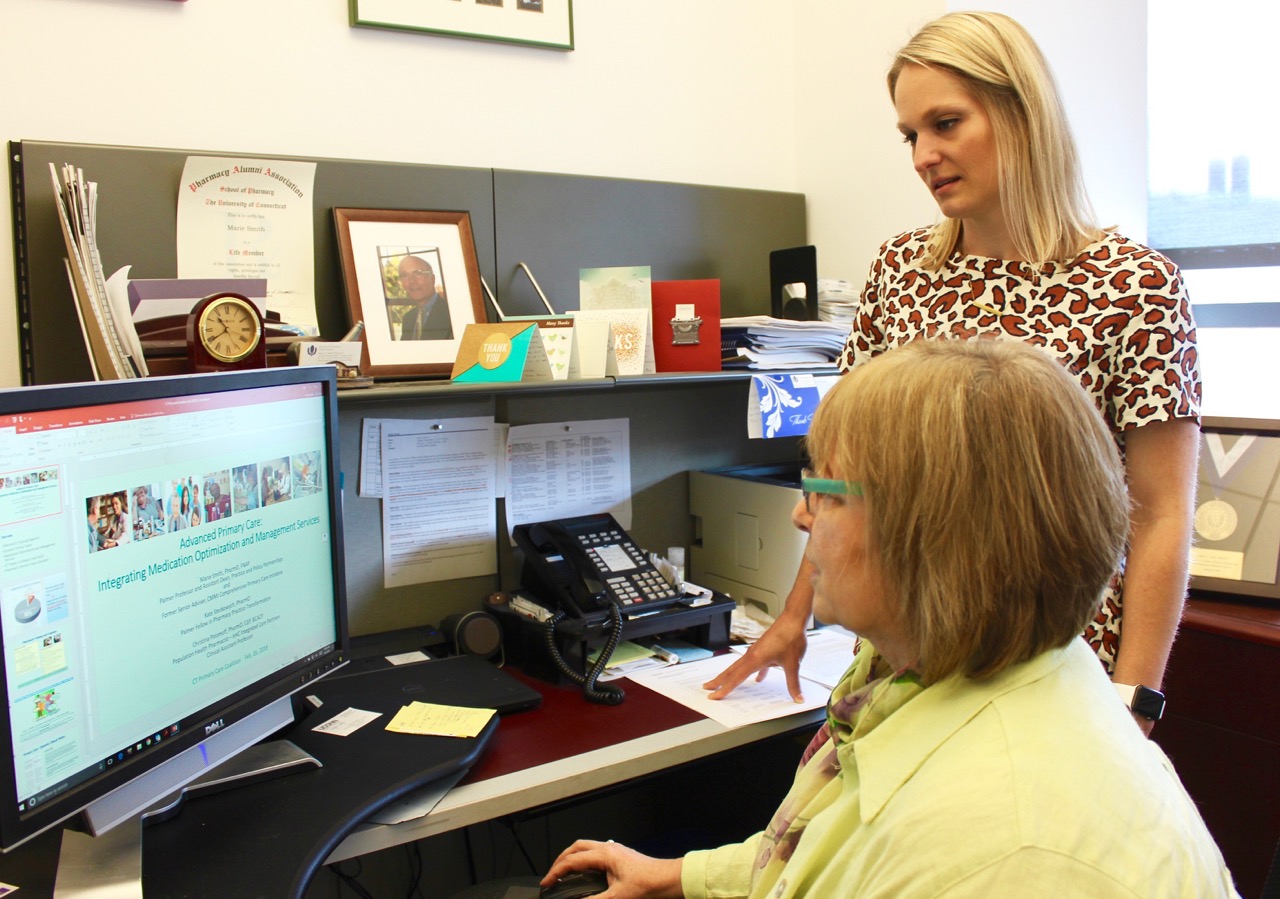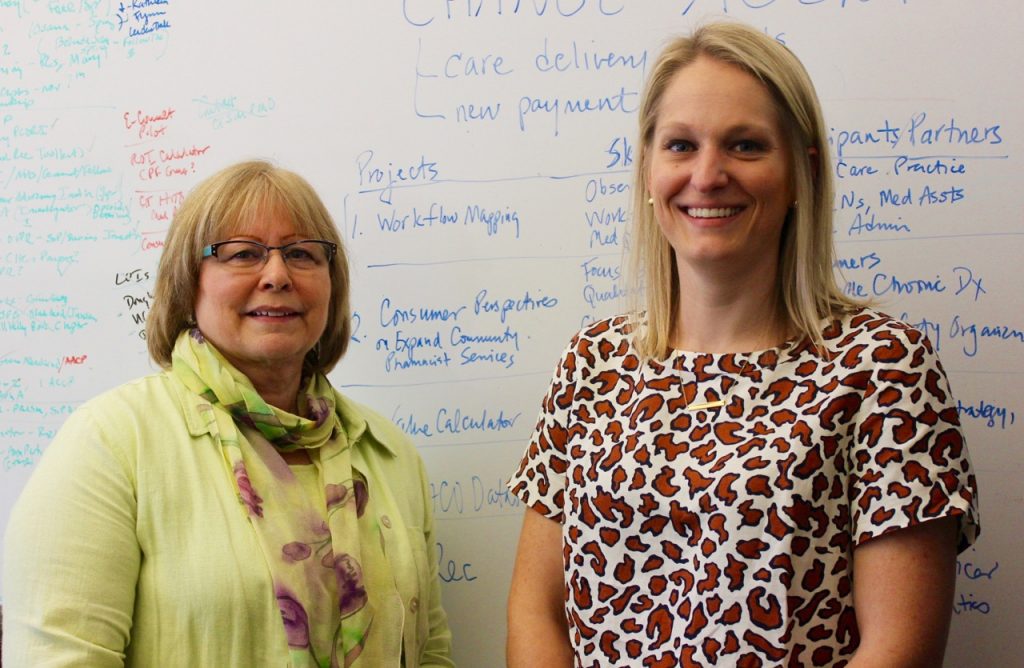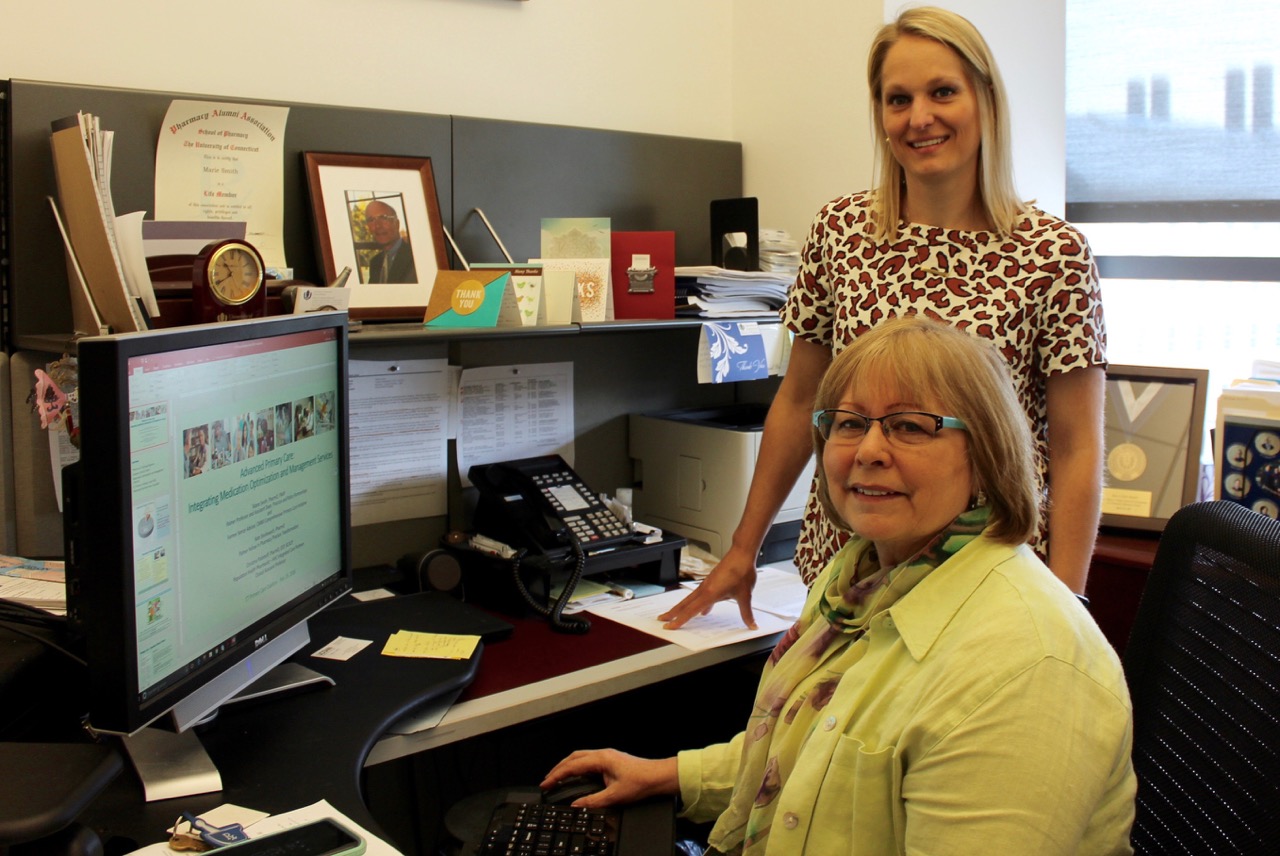
Katherine Steckowych ’15 (Pharm.D.) completed the first Henry A. Palmer Fellowship in Pharmacy Practice Transformation this past June. She has joined the Value Care Alliance, a consortium of Connecticut health care systems, physician groups, and accountable care organizations as their first Clinical Pharmacy Coordinator.
The fellowship is named for Henry A. “Hank” Palmer, a clinical professor of pharmacy practice and former associate dean in the UConn School of Pharmacy, who died in 2009. Palmer spent 42 years teaching at UConn, beginning as a graduate teaching assistant and ending with his retirement in January 2000 as a clinical professor and associate dean.
An expert in the areas of prescription compounding, non-prescription medication, and consumer education, Palmer received many awards for his outstanding work and his commitment to students throughout his distinguished career. He also served as a director of the University’s Alumni Association from 1988 to 1996
In honor of his long-term commitment to the University, the UConn Foundation established the Henry A. Palmer Endowed Professorship in Community Pharmacy Practice in 2010. The individual named to that position was Marie Smith, Assistant Dean for Practice & Public Policy Partnerships and Dr. Henry A. Palmer Endowed Professor of Community Pharmacy Practice. It was Smith who tapped Steckowych as the first Palmer Fellow.
She says, “Hank Palmer was one of my professors and he took pride in being innovative. He was willing to push the envelope and try new things through an interdisciplinary approach to pharmacist services in the community.”
For Smith, that definition of ‘community’ means not only working in retail pharmacies, but also directly with physicians and in outpatient settings. That philosophy is at the heart of the Palmer Fellowship and it is what brought Steckowych to her attention.

“The Fellowship is designed to provide an intense learning experience that allows the recipient to apply clinical and pharmacy practice knowledge while making practical contributions to health care delivery systems,” Smith says. “We’re looking for ways to change the world of pharmacists in ambulatory and primary care settings, as well as working with community partners to make sure that transformation happens.”
“Kate,” Smith continues “was a great fit because of her background in primary care at Coastal Medical, Inc. in Providence where she did her PGY1 residency. For the past several years, I have been focused on developing new and expended roles for pharmacists in primary care and her research interests align perfectly with mine. She also had a current clinical background and I was confident that the Fellowship would give her the opportunity to get valuable experience in both pharmacy practice and health policy.”
For Steckowych, the Fellowship provided multiple opportunities for her to expand her skills. She says, “This was a tremendous opportunity and I was fortunate that I was able to take advantage of all the opportunities that were offered.”
Although the Fellowship was originally designed to be for 12 months, Steckowych was able to extend it through a second year. This enabled her to complete a number of projects while developing a variety of new skills.
The areas she explored included working with a primary care practice to develop a work flow mapping system; a consumer focus group research project that involved measuring consumer perception of the expanding role of community pharmacists, and developing a value calculator to be used in forecasting the measurable value of pharmacists in population health or expanded ambulatory care roles.
She says, “One of the skills I developed when creating the value calculator was learning to make presentations to CEOs, chief medical officers, and health care leaders across the state on the importance and value of pharmacists’ clinical services. The calculator’s utility is in forecasting pharmacist staffing needs for various types of clinical services and, also, in calculating an estimated return on investment by adding a pharmacist to expanded health care teams.”
Another project within the Fellowship was analyzing publically available data for Accountable Care Organizations (ACOs) — those organizations committed to improving care, quality, and cost — to identify opportunities for improvement in medication-related quality measures.
Steckowych also worked with Smith in the area of health policy, specifically as it relates to health information technology.
Smith explains that Steckowych served as a subject matter expert in medication reconciliation as she worked with the State’s Health Information Technology Office. One function in building a health information exchange (HIE), which is a centralized data source where health information can be shared among different healthcare partners, is having a complete and accurate list of a patient’s medications from all prescribers and pharmacies.
“Kate played a key role in identifying financial implications, business implications, and means of integrating medication reconciliation into the overall HIE. There is a group working through the Lt. Governor’s office that is focusing on medical reconciliation and polypharmacy and her work is invaluable to their efforts,” Smith says.
As to the future, Steckowych says she is looking forward to starting her professional career with Value Care Alliance, and putting all those years of pharmacy education and training to good use.
The second Henry A. Palmer Fellow is Erika Vuernick, Pharm.D., who graduated magna cum laude from the University of Western New England School of Pharmacy in 2017. A native of Rocky Hill, Conn., Vuernick completed a PGY1 residency at the University of Rhode Island College of Pharmacy. She has a particular interest in integrating pharmacists into primary care teams and improving community-based care delivery models. She hopes to utilize the Fellowship in sharpening her skills in areas such as grant writing, protocol management, and manuscript preparation.



